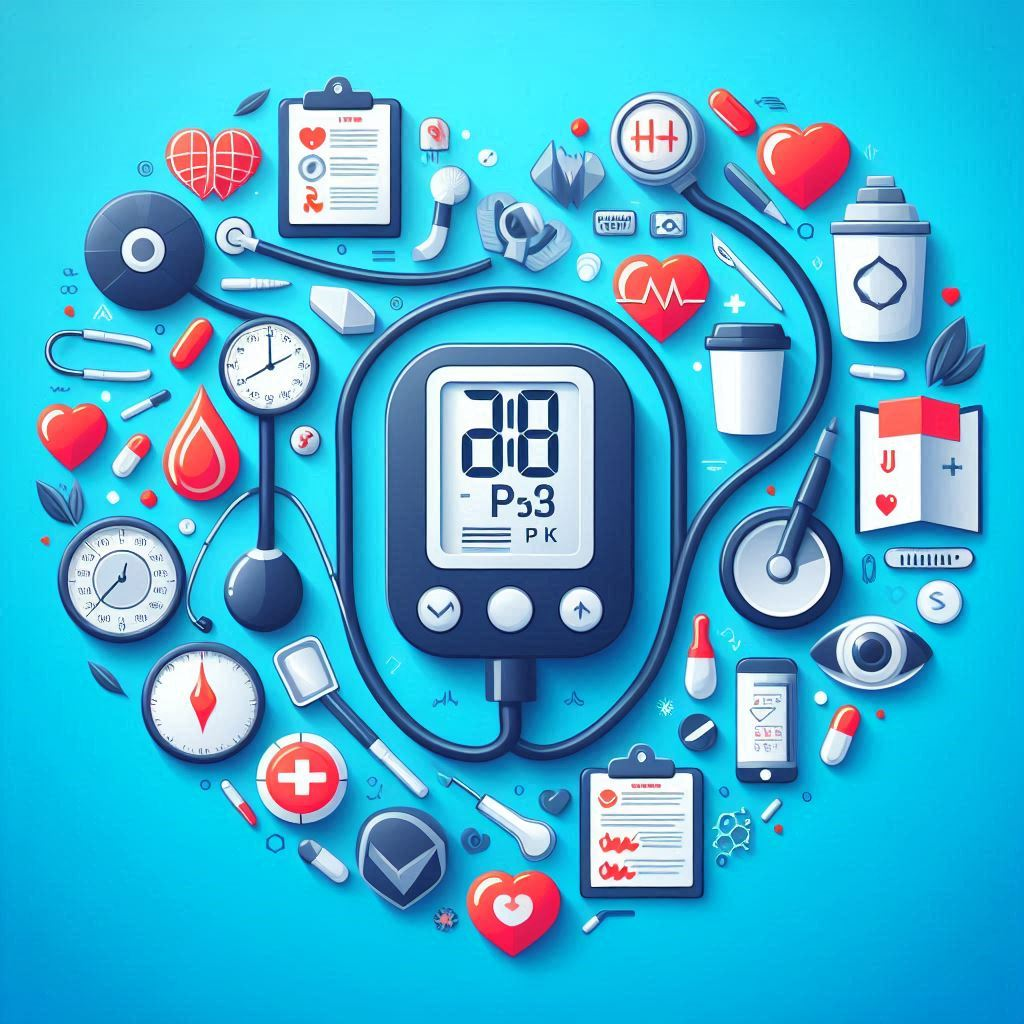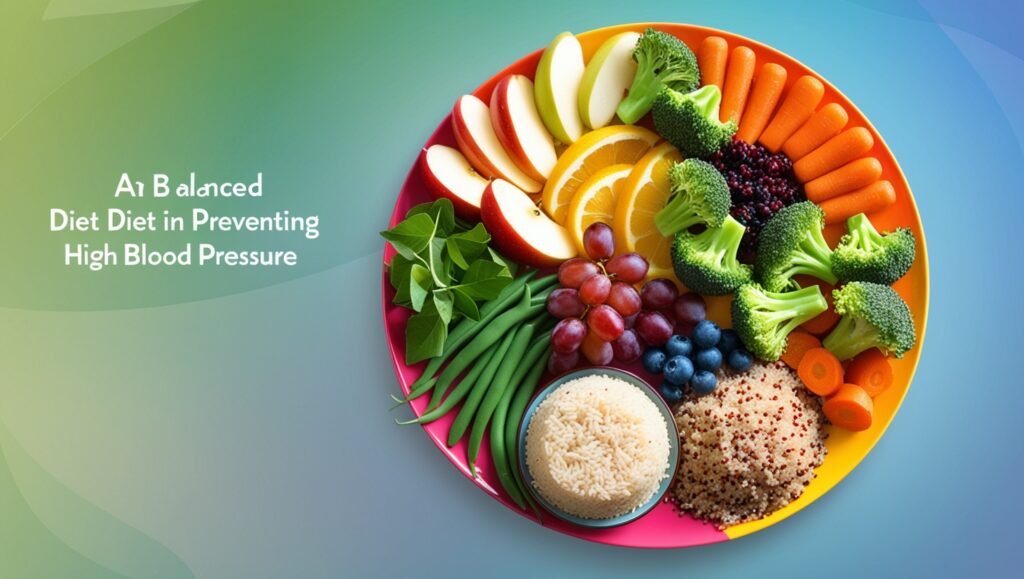
“10 Best Practices to Prevent High B.P”
10 Best Practices to Prevent High Blood Pressure
Discover effective practices to maintain healthy blood pressure levels and promote overall well-being for a healthier life.


Introduction
Overview of the Importance of Preventing High Blood Pressure
Preventing high blood pressure is crucial for maintaining overall health and well-being. High blood pressure, or hypertension, can lead to serious health complications such as heart disease, stroke, and kidney failure. By taking proactive steps to manage and prevent high blood pressure, you can reduce your risk of these conditions and improve your quality of life.
Brief Explanation of the Health Risks Associated with High Blood Pressure
High blood pressure puts extra strain on your heart and blood vessels, increasing the risk of heart attacks and strokes. It can also damage your kidneys and eyes, leading to long-term health issues. Managing blood pressure through lifestyle changes and healthy habits is essential for preventing these risks.

Practice 1: Maintain a Healthy Diet
Importance of a Balanced Diet Rich in Fruits, Vegetables, and Whole Grains
A balanced diet is key to preventing high blood pressure. Consuming a variety of fruits, vegetables, and whole grains provides essential nutrients that support heart health and help maintain healthy blood pressure levels.
Tips for Reducing Sodium Intake and Avoiding Processed Foods
- Reduce Sodium: Limit your intake of salt and sodium-rich foods. Opt for fresh, unprocessed foods and use herbs and spices for flavor.
- Avoid processed foods: processed foods often contain high levels of sodium and unhealthy fats. Choose whole, natural foods whenever possible.

Practice 2: Exercise Regularly
Benefits of Regular Physical Activity for Heart Health
Regular physical activity strengthens the heart, improves blood circulation, and helps maintain a healthy weight. Exercise can also reduce stress and lower blood pressure.
Recommended Types of Exercises and Frequency
- Aerobic Exercises: Activities like walking, jogging, swimming, and cycling are beneficial for cardiovascular health. Aim for at least 150 minutes of moderate-intensity exercise per week.
- Strength Training: Incorporate strength training exercises at least two days a week to build muscle and support overall health.
Practice 3: Manage Stress
Connection Between Stress and High Blood Pressure
Chronic stress can contribute to high blood pressure by causing the body to release stress hormones that increase heart rate and constrict blood vessels. Managing stress is essential for maintaining healthy blood pressure levels.
Techniques for Stress Management
- Meditation: Practice mindfulness meditation to reduce stress and promote relaxation.
- Yoga: Engage in yoga to improve flexibility, reduce stress, and enhance overall well-being.
- Deep Breathing: Use deep breathing exercises to calm the mind and reduce stress levels.
Practice 4: Maintain a Healthy Weight
Impact of Weight on Blood Pressure Levels
Excess weight can increase the risk of high blood pressure. Maintaining a healthy weight through diet and exercise can help lower blood pressure and reduce the risk of related health issues.
Tips for Achieving and Maintaining a Healthy Weight
- Balanced Diet: Follow a balanced diet rich in fruits, vegetables, whole grains, and lean proteins.
- Regular Exercise: Engage in regular physical activity to burn calories and maintain a healthy weight.
- Monitor Progress: Keep track of your weight and make adjustments to your diet and exercise routine as needed.
Practice 5: Limit Alcohol Consumption
Effects of Alcohol on Blood Pressure
Excessive alcohol consumption can raise blood pressure and contribute to other health problems. Limiting alcohol intake is important for maintaining healthy blood pressure levels.
Guidelines for Moderate Alcohol Consumption
- Moderation: Limit alcohol intake to no more than one drink per day for women and two drinks per day for men.
- Choose Wisely: Opt for lower-alcohol beverages and avoid binge drinking.
Practice 6: Avoid Tobacco Use
How Smoking and Tobacco Use Contribute to High Blood Pressure
Smoking and tobacco use can damage blood vessels, increase heart rate, and raise blood pressure. Quitting smoking is one of the most effective ways to improve heart health and lower blood pressure.
Benefits of Quitting Smoking and Resources for Support
- Health Benefits: Quitting smoking can improve lung function, reduce the risk of heart disease, and lower blood pressure.
- Support Resources: Seek support from healthcare providers, support groups, and smoking cessation programs to help you quit.

Practice 7: Monitor Blood Pressure Regularly
Importance of Regular Blood Pressure Checks
Regular blood pressure checks are crucial for early detection and management of high blood pressure. Monitoring your blood pressure at home can help you keep track of your health and make necessary lifestyle adjustments.
Tips for Monitoring Blood Pressure at Home
- Use a Reliable Monitor: Invest in a good-quality blood pressure monitor.
- Follow Instructions: Ensure you follow the manufacturer’s instructions for accurate readings.
- Keep a Log: Record your readings to track changes and share them with your healthcare provider.
Practice 8: Get Enough Sleep
Role of Sleep in Maintaining Healthy Blood Pressure
Adequate sleep is essential for maintaining healthy blood pressure. Poor sleep can lead to increased stress and higher blood pressure levels.
Tips for Improving Sleep Quality
- Stick to a Schedule: Go to bed and wake up at the same time every day.
- Create a relaxing routine: Develop a bedtime routine that helps you unwind.
- Optimize Your Sleep Environment: Ensure your bedroom is dark, quiet, and cool.
Practice 9: Stay Hydrated
Importance of Hydration for Overall Health
Staying hydrated is vital for overall health and can help maintain healthy blood pressure levels. Dehydration can cause blood pressure to fluctuate.
Tips for Staying Hydrated Throughout the Day
- Drink Water Regularly: Aim to drink at least 8 glasses of water daily.
- Carry a Water Bottle: Keep a water bottle with you to remind yourself to drink.
- Eat Hydrating Foods: Include water-rich foods like fruits and vegetables in your diet.
Practice 10: Limit Caffeine Intake
Effects of Caffeine on Blood Pressure
Excessive caffeine consumption can raise blood pressure. Moderating your caffeine intake is important for maintaining healthy blood pressure levels.
Tips for Moderating Coffee Consumption
- Limit Intake: Reduce the number of caffeinated beverages you consume.
- Choose Alternatives: Opt for decaffeinated drinks or herbal teas.
- Be mindful: Pay attention to hidden sources of caffeine in foods and medications.
Conclusion
Recap of the 10 Best Practices to Avoid High Blood Pressure
- Maintain a Healthy Diet
- Exercise Regularly
- Manage Stress
- Maintain a Healthy Weight
- Limit Alcohol Consumption
- Avoid Tobacco Use
- Monitor Blood Pressure Regularly
- Get Enough Sleep
- Stay Hydrated
- Limit Caffeine Intake
Encouragement to Adopt These Practices for Better Heart Health
Incorporating these best practices into your daily routine can help you avoid high blood pressure and promote better heart health. Small changes can make a big difference in your overall well-being.
Final Thoughts on the Importance of a Healthy Lifestyle for Blood Pressure Management
A healthy lifestyle is key to preventing and managing high blood pressure. By adopting these practices, you can control your health and enjoy a longer, healthier life.





2 Comments
Pingback:
Pingback: